Part 83: Victoria: Chapter 17 - Heart of Darkness: 1875 - 1880
1875 - 1880: Heart of Darkness
In March of 1875, Swabia lays claim to all of Mikronesia and Middle Congo.

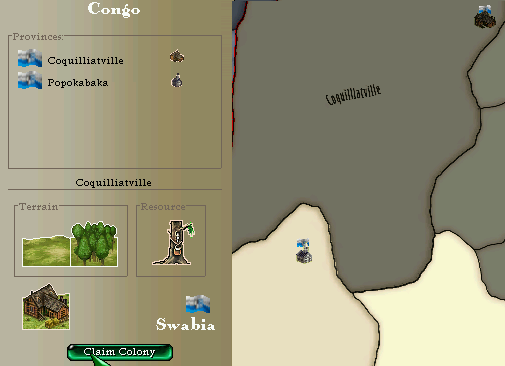
A groundbreaking discovery spreads to Swabia in the same month in the form of mandatory vaccines for several common illnesses. A few protests by Anarcho-Liberal groups that blame the vaccines as a cause for psychosis among children are ignored.
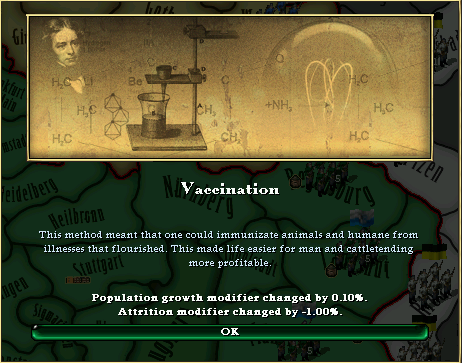
Technology investment focuses on industry and culture, research of nationalism and Germanism in particular is given significant attention.

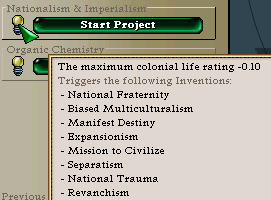
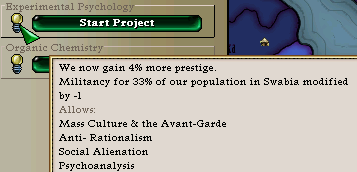

Tensions are growing in Africa between Swabians and French, especially over the bitterly contested Gabon region. Frederick II, eager for an opportunity to expand Swabia's colonies, smells an opportunity.
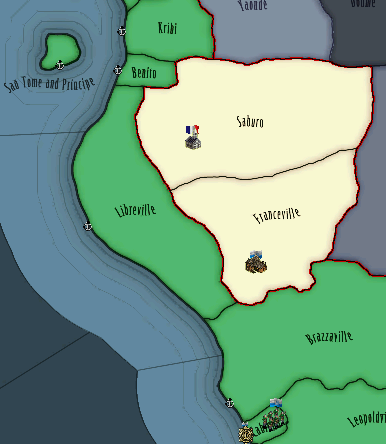
In autumn, the Swabian fleet is put at full readiness and troops are shipped from the other colonies to Congo.
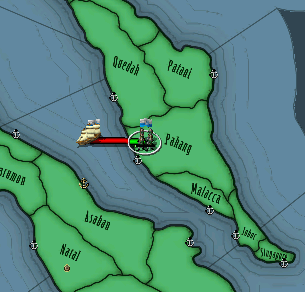

In December, Swabian troops cross the border into French Africa, sparking a colonial war with France, Austria and Byzantium.


Gabon is occupied and claimed for Swabia.

Meeting little resistance, the Swabian troops continue further north, seizing French forts and trading posts as they go.
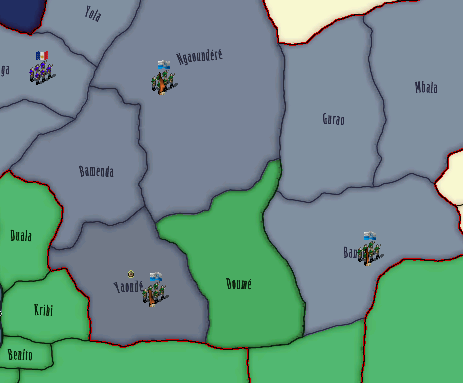
The Baltic Fleet, sent to patrol France's coasts and interdict any troop transports, encounters a large French fleet of mostly commerce raiders in April of 1876. After a fierce battle that costs the Baltic fleet all of its own raiders, the French fleet is sunk.
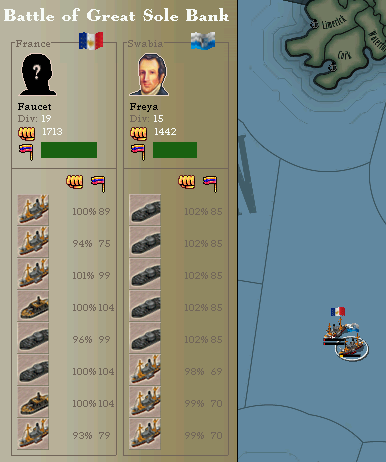
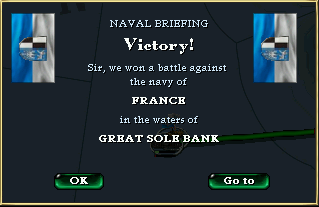
While retreating to Mecklenburg, the Baltic Fleet encounters a massive Byzantine and French navy escorting a large number of troop transports through the English Channel. The five Swabian monitors harrass the enemy fleet, buying time for the Mediterranean Fleet to arrive, sparking one of the largest sea battles ever seen. After days of fighting, the enemy navy is almost completely wiped out, though at the cost of 23 Swabian ships.
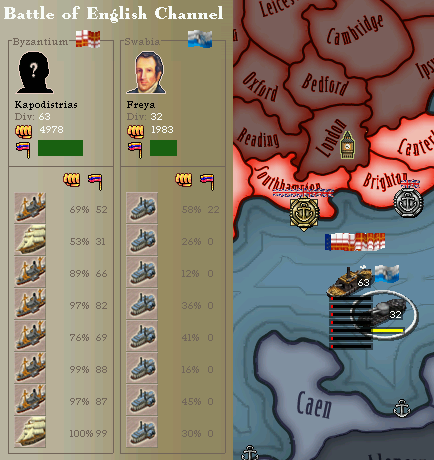
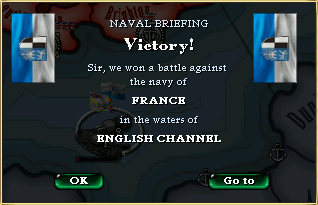
The remaining ships, nearly all badly damaged, are sent to Iceland for repair and supply.
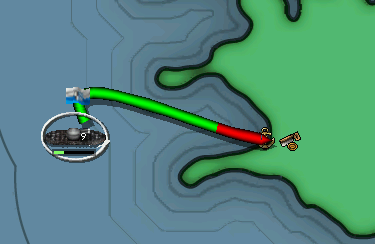
Swabian incursion into French Africa continues as the only French division in the area is lured out of its fortified position at Luskoja and defeated by the Swabian colonial troops. Before long, all of French Middle Africa is in Swabian hands save for a single heavily fortified coastal holding.
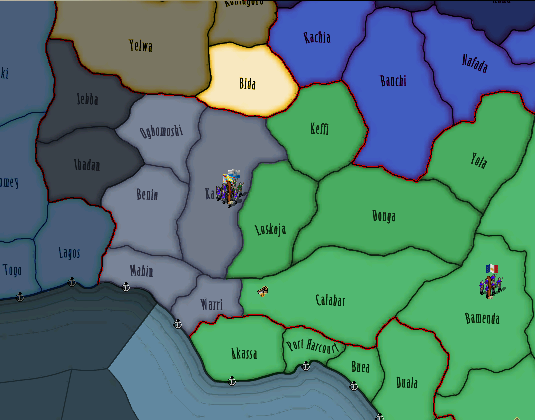
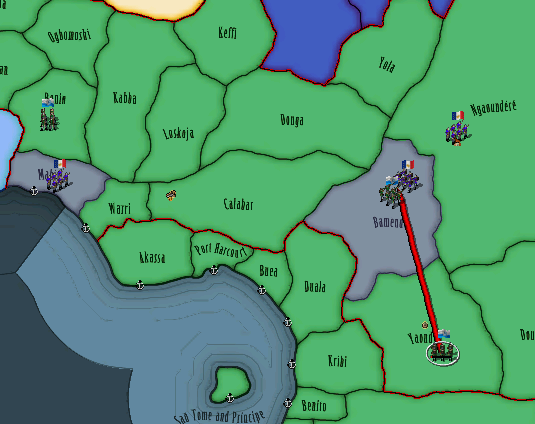
Having achieved all of his goals, Frederick II makes a peace feeler to France in December of 1876, offering them a ceasefire in exchange for minor territorial concessions. The offer is rejected.
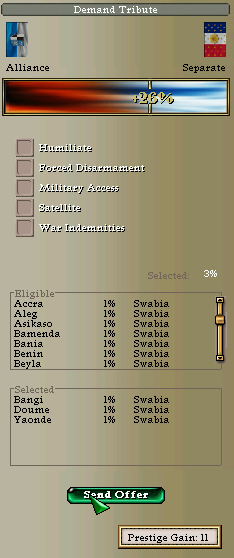
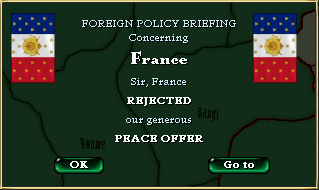
The old colonial fleet is sent to Congo to ship troops to the other African holdings, but is intercepted by a small Byzantine fleet squadron.

Instead, a squadron of new steamer transports are sent down from Swabia, and invasion of the French slave coast begins in January of 1878.
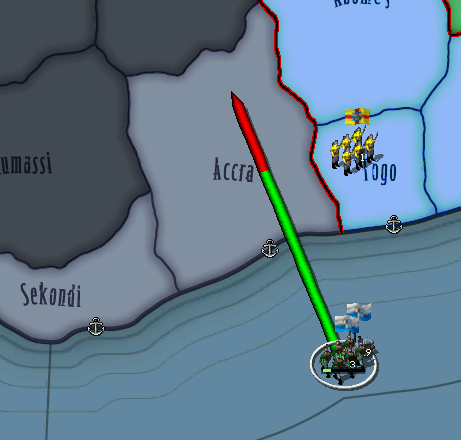
Unfortuantely, the area turns out to be defended by five regular French infantry divisons, and the Swabian expedition is forced to retreat back onto the ships.
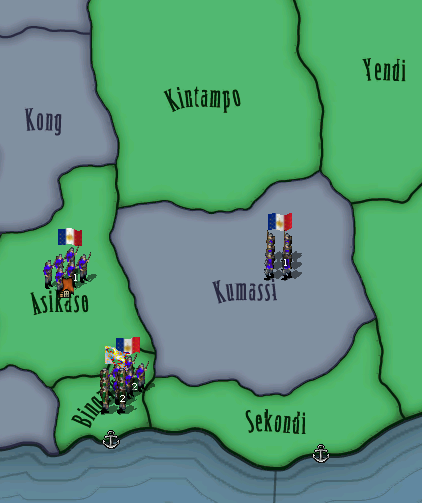
As the fighting continues in the colonies, development continues at home, with continued free exchange of ideas between the SGF and Swabia.

The instability of the mixed standard currency forces the Swabian government to switch to the Gold Standard in September, a move that is praised by the Anarcho-Liberal minority.
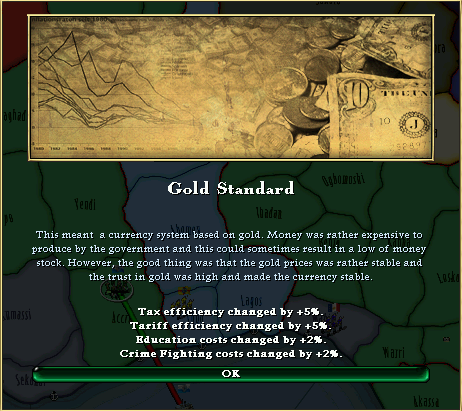
Swabian colonial expansion continues with the claiming of Kasai.
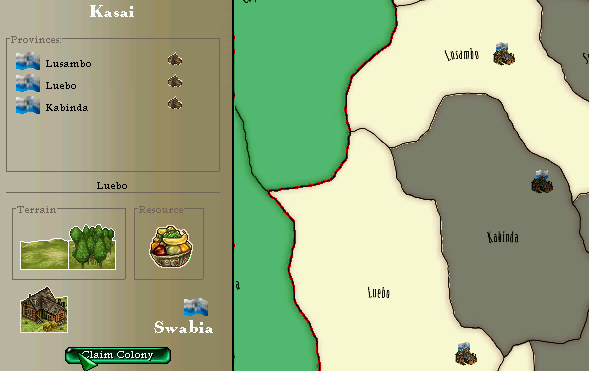
In late 1879, Swabian troops control significant parts of French Mauretania and are making inroads along the slave coast with the aid of regular troops. The French seem ready for peace, and one is offered in November, demanding five Middle African provinces. It is accepted, and soon thereafter, white peace is signed with the Byzantines. Middle Africa - the Heart of Darkness - now belongs to Swabia.
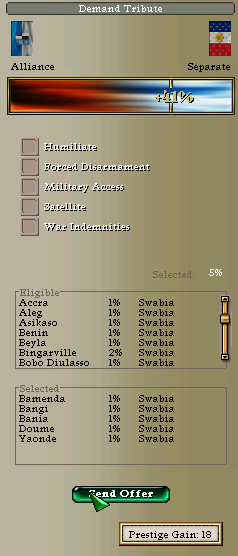
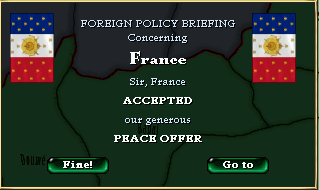
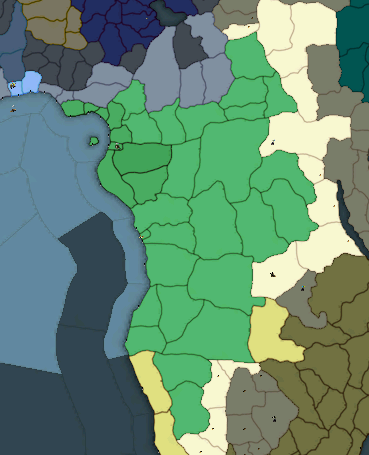
As the year ends, preparations are made for the Unification Reichstag, when it is hoped that Germany can finally be brought together. The NGF and SGF, having been the beneficiaries of Swabian protection and development aid for the last two decades, are now significantly more positive towards Swabian rule, and even Austria has offered gestures of reconcilliation despite the recent conflicts, sending diplomats to discuss Austria's role in a unified Germany.
(Unification Reichstag update coming shortly)